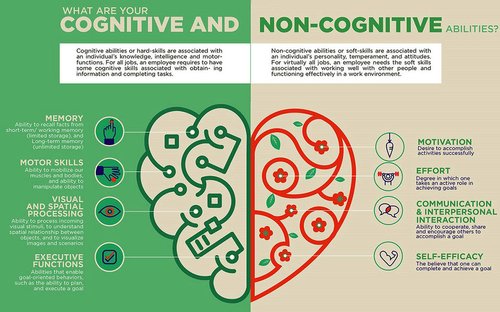



Volontariato
27 Gennaio 2019

Confronto tra Il principe e i Discorsi sopra la prima deca di Tito Livio
27 Gennaio 2019Democritus of Abdera was one of the most important pre-Socratic philosophers, best known for his atomic theory.
He lived in the 5th century BCE, and his ideas had a profound influence on Western scientific thought.
Democritus’ Atomism
Democritus’ atomic theory represents one of the earliest and boldest speculations on the nature of matter. According to the Greek philosopher, everything that exists, from the largest celestial body to the smallest speck of dust, is composed of tiny, indivisible particles called atoms.
Atoms in the Void: Atoms move in an infinite void and combine in various ways, giving rise to the infinite variety of things.
Properties of Atoms: Atoms are eternal, indivisible, solid, and lack sensory qualities (color, taste, etc.). Sensory qualities result from different combinations of atoms.
Mechanical Causality: The movement of atoms is governed by mechanical laws rather than final causes.
The Philosophical Implications of Atomism
Democritus’ atomism had deep philosophical implications:
Materialism: Democritus was a materialist, meaning he believed reality was exclusively material and that everything could be explained in terms of matter and motion.
Determinism: The movement of atoms was determined by causal laws, implying a deterministic view of the world.
Nature of Knowledge: Democritus distinguished between true knowledge, based on reason and understanding the nature of atoms, and apparent knowledge, based on the senses and misleading.
Comparison with Other Philosophical Schools
Pythagoreanism: While the Pythagoreans viewed numbers as the principle of all things, Democritus postulated atoms as fundamental elements. Both sought to explain reality through rational principles but used different conceptual tools.
Eleaticism: In contrast to the Eleatics, who denied becoming and multiplicity, Democritus affirmed the existence of the void and movement, explaining becoming as the result of the combination and separation of atoms.
The Comparison between Democritus’ and Epicurus’ Atomism
Epicurus, a philosopher after Democritus, adopted and developed atomic theory with some significant modifications:
Clinamen: Epicurus introduced the concept of clinamen, a spontaneous deviation of atoms from their straight path, to explain human freedom and randomness.
Happiness: Epicurus centered his philosophy on the pursuit of happiness, achievable through knowledge of nature and freedom from fears, particularly the fear of death and the gods.
Hedonistic Ethics: Epicurean ethics is often defined as hedonistic, though in a moderate sense: the pleasure to be pursued comes from a simple life without excess, based on friendship and wisdom.
In summary, while Democritus emphasized the material nature of the world and the laws that govern it, Epicurus used atomism as a foundation to build an ethical philosophy aimed at human happiness.
Certainly! Let’s analyze these interesting aspects of atomism:
The Influence of Democritus’ Atomism on Roman Philosophy
Greek atomism, particularly that of Epicurus, had a notable influence on Roman philosophy. Philosophers like Lucretius dedicated entire works to disseminate and develop atomic ideas, making them accessible to a broader audience.
De Rerum Natura: Lucretius’ most famous work, De Rerum Natura, is an epic poem in which he expounds Epicurean philosophy, with a particular focus on atomism. Lucretius used poetic language and vivid imagery to make complex philosophical concepts understandable.
Materialism and Epicureanism: Roman atomism, influenced by Epicurus, focused on the ethical aspect of philosophy, proposing a life based on moderate pleasure and freedom from fears, especially the fear of death and the gods.
The Spread of Materialism: Atomism contributed to the spread of a materialistic view of the world, challenging traditional religious beliefs and fostering greater autonomy of thought.
The Relationship between Atomism and Religion
Atomism has always had a complex and often conflicting relationship with religion:
Materialism vs. Spirituality: As a materialistic philosophy, atomism was in contrast with religions that posited the existence of an immortal soul and a spiritual world.
Natural Causality vs. Divine Intervention: The idea that the world is governed by natural laws rather than divine intervention contradicted traditional religious beliefs.
Epicureanism and Happiness: Epicureanism, linked to atomism, proposed a view of happiness based on moderate pleasure and tranquility of the soul, often seen as challenging traditional religiosity, which emphasized renunciation and suffering.
However, it’s essential to note that the relationship between atomism and religion has been complex and varied across time and cultures. In some cases, there were syntheses between philosophical and religious elements.
Criticisms of Atomism throughout History
Atomism has faced numerous criticisms over time:
Religious: Monotheistic religions have often criticized atomism for its materialism and denial of an immortal soul and a creator god.
Philosophical: Philosophers like Aristotle criticized atomism for its inability to explain the order and purpose present in nature.
Scientific: Until the discovery of the atom in the 19th century, atomism was often considered a philosophical speculation without empirical foundation.
In conclusion, Democritus’ atomism was a revolutionary philosophical theory that profoundly influenced the history of Western thought. Despite criticism and controversy, atomism anticipated many modern scientific discoveries and helped shape our worldview.
The Legacy of Democritus
Democritus’ atomism was a fundamental starting point for the development of modern science. His ideas were adopted and developed by later philosophers and scientists, culminating in the modern atomic theory.
In summary, Democritus was a revolutionary thinker who anticipated some modern scientific discoveries by many centuries. His atomic theory represents a bold and fascinating attempt to explain the complexity of the world through a simple, unifying principle.
Absolutely! Let’s analyze these interesting aspects of Democritean atomism:
The Relationship between Democritus’ Atomism and Modern Physics
Democritus’ atomism, though formulated in a very different cultural and historical context, presents striking parallels with modern physics:
Concept of the Atom: The idea that matter consists of indivisible particles is a fundamental pillar of both ancient atomism and modern physics. The discovery and study of atoms have confirmed Democritus’ intuition.
Mechanical Causality: Democritus maintained that the movement of atoms was governed by mechanical laws. This notion aligns with the causality principle underlying classical physics.
Void and Space: The idea of a void in which atoms move anticipates the concept of empty space in modern physics.
Conservation of Matter: Democritus’ assertion that “nothing comes from nothing, and nothing is destroyed into nothing” foreshadows the principle of mass conservation.
Differences: Of course, there are also significant differences. Modern physics has refined the concept of the atom, discovering that it is composed of subatomic particles and that the laws governing the microscopic world differ greatly from those of classical physics.
The Ethical Implications of Atomism
Democritus’ atomism had important ethical implications:
Materialism: Democritus’ materialism led to a naturalistic view of humanity and the universe, distancing philosophy from religion and metaphysics.
Determinism: Determinism implies that human actions are determined by natural laws and interactions between atoms. This can lead to a fatalistic view of existence and questioning human freedom.
Ethics Based on Nature: Democritus seems to have advocated for an ethics based on nature, where goodness lies in living in harmony with nature and seeking tranquility of the soul.
materiale didattico e appunti su atuttascuola
-
DEMOCRITO – filosofia di Miriam Gaudio
-
ANASSAGORA – filosofia di Miriam Gaudio


-
EMPEDOCLE e IL PLURALISMO di Miriam Gaudio
-
Gli atomisti in formato pdf, di Zaira Gangi
materiale didattico e appunti su altri siti
-
Democrito ed Epicuro visti da Karl Marx del prof. Benito Marino in formato PDF
-
Democrito di Appunti e ricerche
-
Democrito di Diego Fusaro
Audio Lezioni, ascolta il podcast di Filosofia del prof. Gaudio
Ascolta “Filosofia” su Spreaker.




